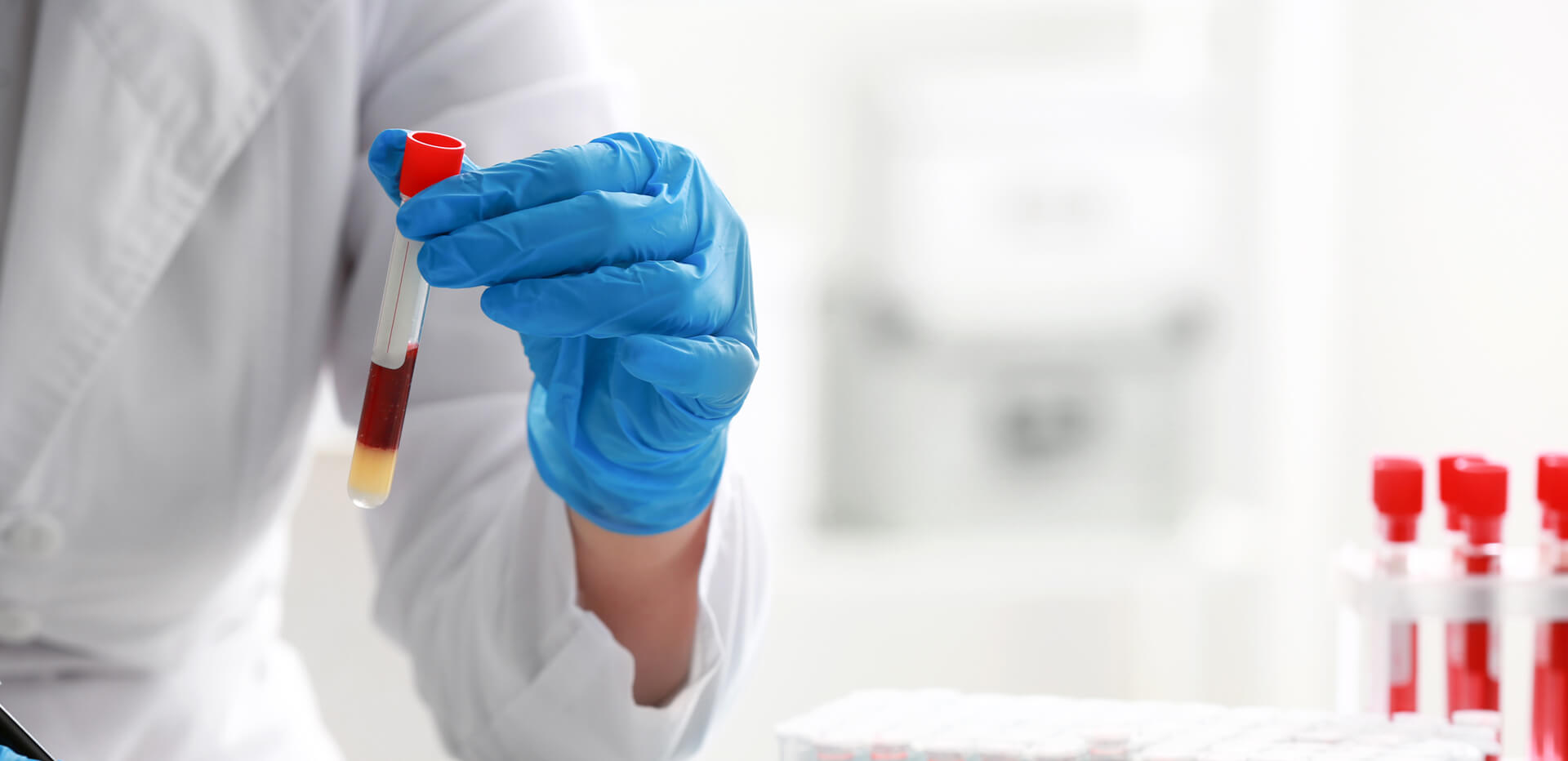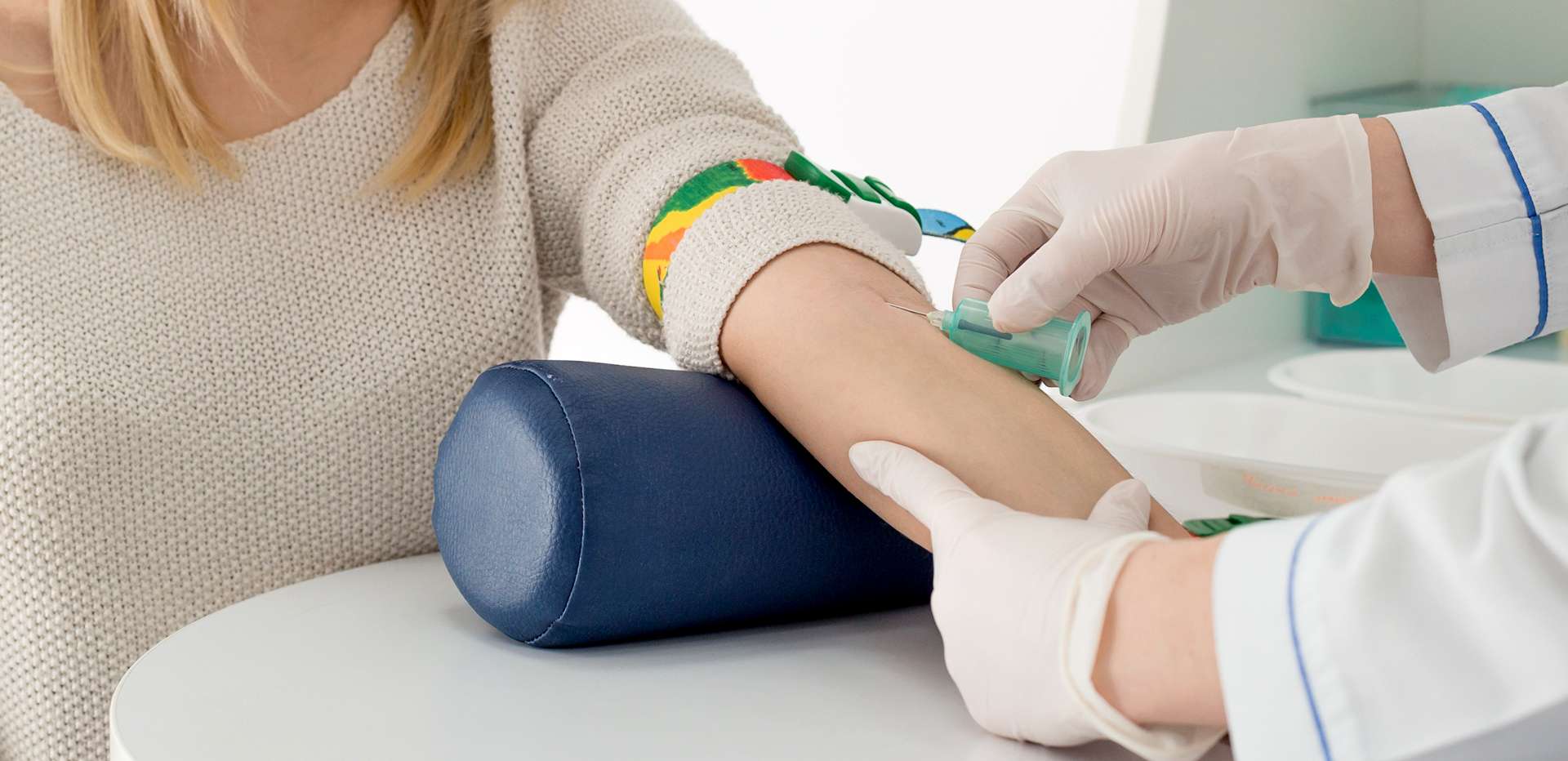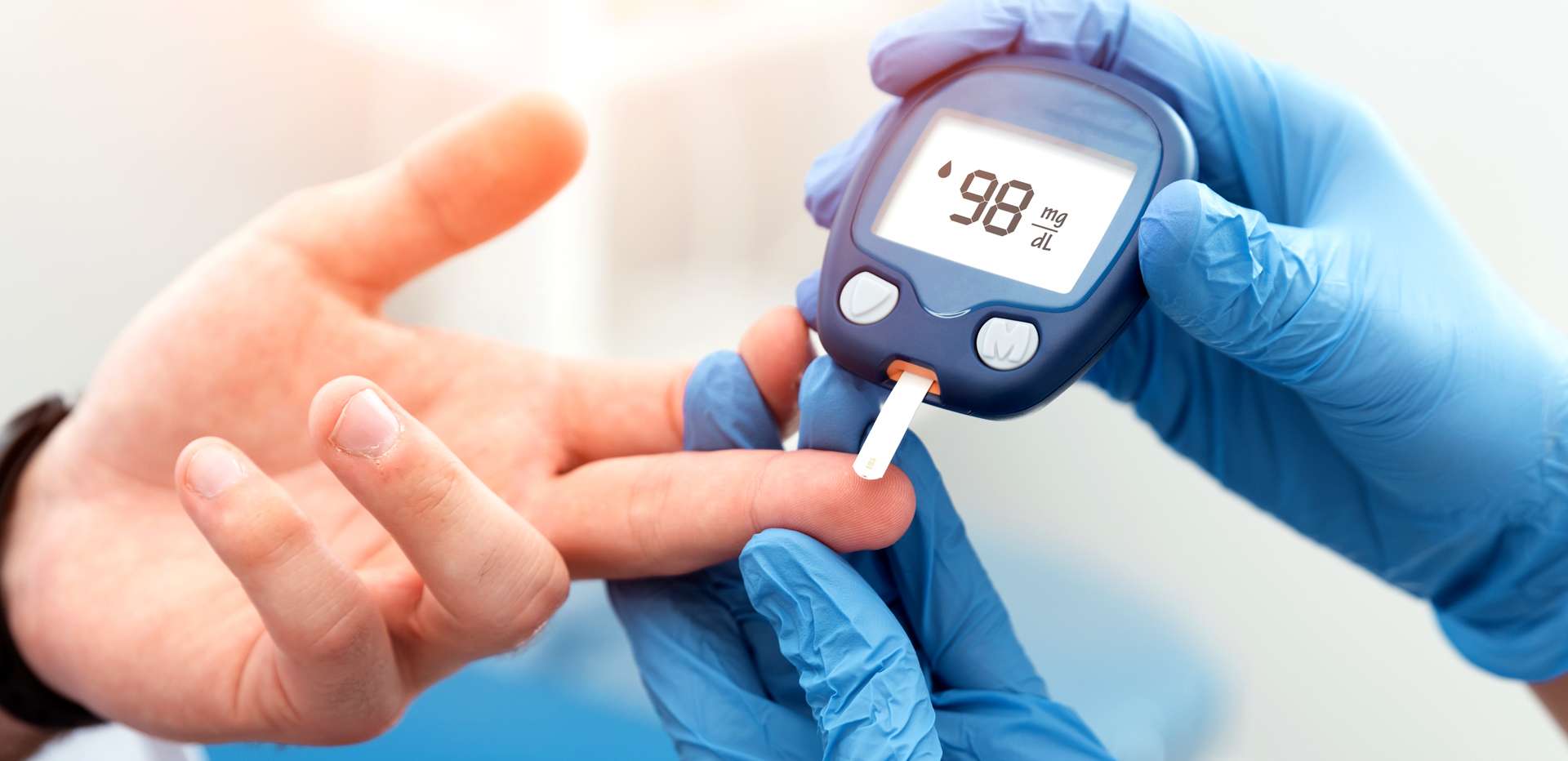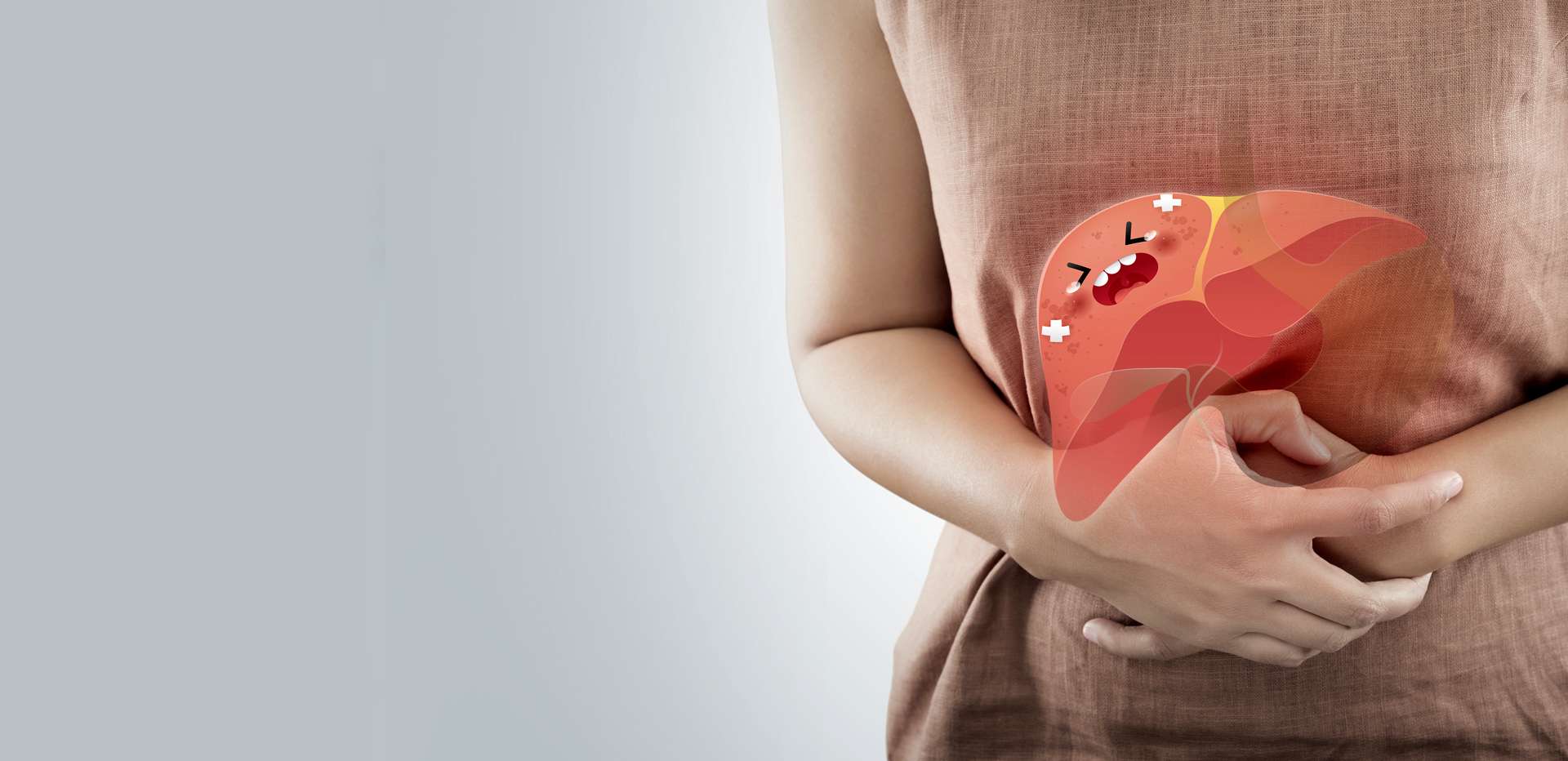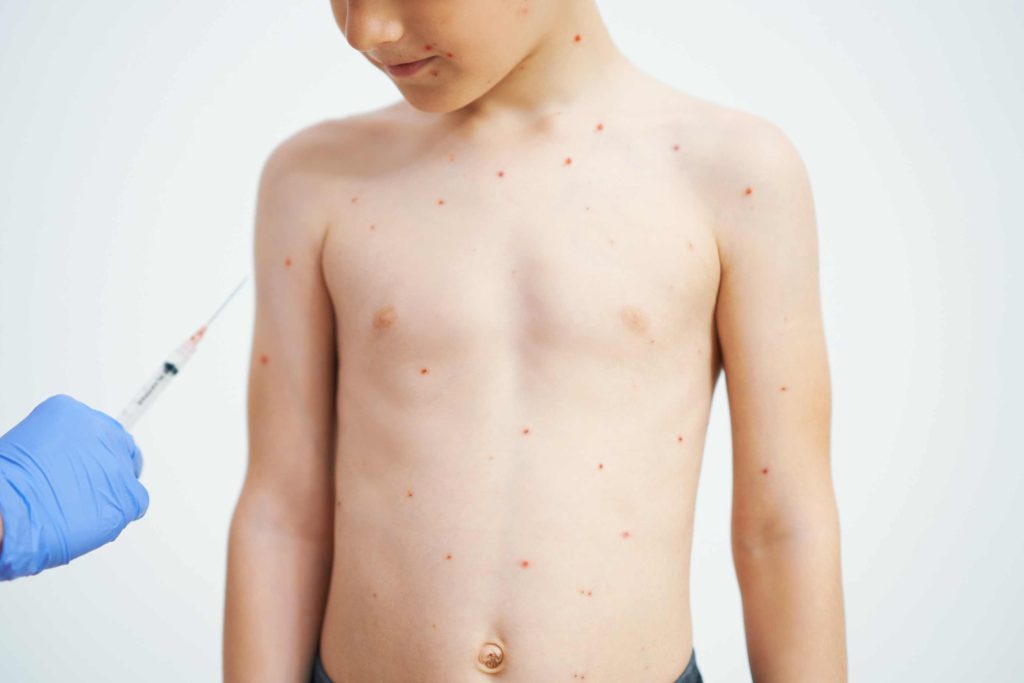Chickenpox is a common illness, especially among children, but it can affect adults too. Understanding the symptoms, stages and treatments of chickenpox is essential, whether you’re dealing with it personally or as a parent. This article breaks down the key facts about chickenpox, from its early signs to how it can prevented using chickenpox vaccination.
What Is Chickenpox?
Chickenpox is caused by the varicella-zoster virus. It’s highly contagious and spreads easily from person to person. The virus mainly affects children, but adults who haven’t had chickenpox or the chickenpox vaccination can also catch it.
Is Chickenpox Spreadable?
Yes, chickenpox is highly spreadable. It can spread through direct contact with the rash or by inhaling airborne droplets from an infected person’s coughs or sneezes. Chickenpox is most contagious from 1-2 days before the rash appears until all the blisters have formed scabs.
Chickenpox Beginning Symptoms
The early signs of chickenpox often resemble those of a cold or flu. These can include:
- Fever: One of the first signs of chickenpox is a mild to high fever.
- Fatigue: Feeling unusually tired or weak.
- Headache: A common early symptom that can be mild or severe.
- Loss of Appetite: A reduced desire to eat is also common in the initial stages.
These symptoms usually appear 1-2 days before the telltale rash develops.
Signs and Symptoms of Chickenpox
The main symptom of chickenpox is a red, itchy rash that turns into fluid-filled blisters. These blisters eventually form scabs and fall off. The rash typically starts on the chest, back or face and then spreads to the rest of the body, including inside the mouth, eyelids and genital area.
Other signs and symptoms of chickenpox include:
- Itching: The rash can be intensely itchy, causing discomfort.
- Blisters: These small, fluid-filled blisters appear in waves over several days.
- Scabbing: After a few days, the blisters begin to form crusts or scabs.
- General Discomfort: In addition to the rash, some people may feel generally unwell or irritable.
What are the Stages of Chickenpox?
Chickenpox progresses through several stages:
- Prodromal Stage: This is the early phase, where symptoms like fever, fatigue and headache begin.
- Rash Development: A red, spotty rash appears, which soon turns into fluid-filled blisters.
- Blistering Stage: New blisters continue to form over a few days. They may appear in waves, with some areas of the body blistering while others are still in the rash stage.
- Scabbing Stage: The blisters eventually dry out and form scabs. This stage marks the beginning of the end of the contagious period.
- Healing Stage: Over the next few weeks, the scabs fall off and the skin heals. It’s important not to scratch the scabs to avoid scarring.
Common Chickenpox Treatments
Chickenpox usually resolves on its own within one to two weeks, but there are treatments to ease symptoms and prevent complications.
- Rest and Hydration: Getting plenty of rest and drinking fluids helps the body fight the virus.
- Pain Relief: Over-the-counter medications like paracetamol can help reduce fever and pain. It’s important to avoid giving aspirin to children with chickenpox, as it can cause a serious condition called Reye’s syndrome.
- Itch Relief: To relieve itching, calamine lotion or cooling gels can be applied to the skin. Antihistamines may also be recommended to reduce itching, especially at night.
- Bathing: Taking baths in cool water with added baking soda or oatmeal can soothe the skin and reduce itching.
- Antiviral Medications: In severe cases, especially for those at risk of complications, a doctor may prescribe antiviral medications to reduce the severity and duration of chickenpox.
Chickenpox Vaccination and Prevention
The best way to prevent chickenpox is through vaccination. The chickenpox vaccine is safe and highly effective, providing immunity to the virus in most cases. In the UK, the chickenpox vaccination is not part of the routine childhood vaccination schedule but is offered to people who are particularly at risk, such as healthcare workers or those with weakened immune systems.
The vaccine can also be given after exposure to the virus, which can prevent the disease or reduce its severity if administered within a few days of exposure.
Protect Your Health: Book Your Chickenpox Vaccination Today
Chickenpox is a common, contagious illness with identifiable symptoms and stages. While it usually clears up on its own, treatments can ease discomfort and prevent complications. Vaccination is the most effective way to prevent chickenpox.
Contact us today to book an appointment with one of our vaccine specialists and ensure you or your loved ones are protected against chickenpox. Our expert team at Touchwood Pharmacy is here to provide you with the best advice and care, tailored to your needs.
Schedule your vaccination today and take the first step towards safeguarding your health.




